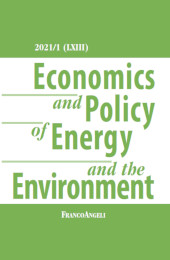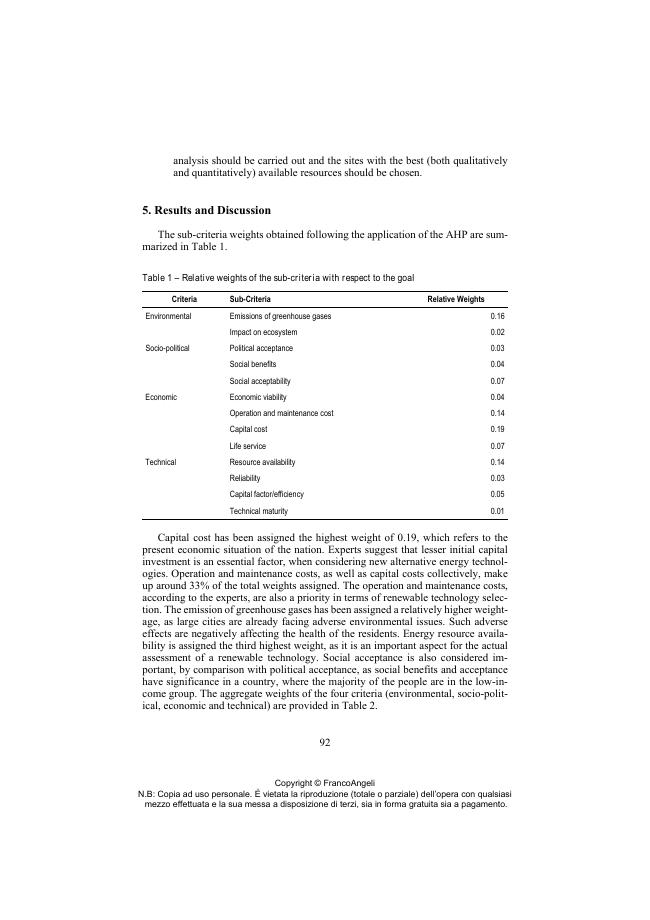The prioritization of renewable energy technologies in Pakistan : an urgent need
81-103 p.
Pakistan is the world's sixth most populous country, currently facing the worst energy crisis. Although rich in renewable resources, Pakistan's energy system relies mainly on fossil fuels and imported energy for its energy needs. This study aims to use an analytical hierarchy process to prioritize six renewable technologies for Pakistan, with four criteria and thirteen subcriteria. The results indicate that solar power is particularly well suited for Pakistan, as it gained 42% priority weightage in the final aggregation. Wind energy is ranked second with a priority weight of 24%, followed by hydro 13%, biomass 9%, ocean 8% and geothermal energy 3%. Solar and wind energies accounted for nearly 66% of the total weightage. This result highlighted the significance of economic criteria for the selection of renewable technologies in Pakistan, with around 43% priority weightage.
Environmental criteria gained 19% whereas sociopolitical criteria registered 14% and technical criteria 23% priority weightage. During the potential assessment of the research, it was concluded that although renewable resource development has not been allocated sufficient attention in Pakistan in the past, if the correct decisions are taken regarding the exploitation of these resources, this can remedy the country's hazardous dependence on fossil fuel and imported energy. [Publisher's text].
-
Articles from the same issue (available individually)
-
Information
ISSN: 2280-7667
KEYWORDS
- Pakistan, solar, wind, economic criterion, environmental criterion, analytic hierarchy process



